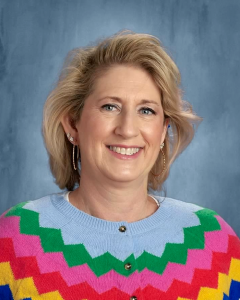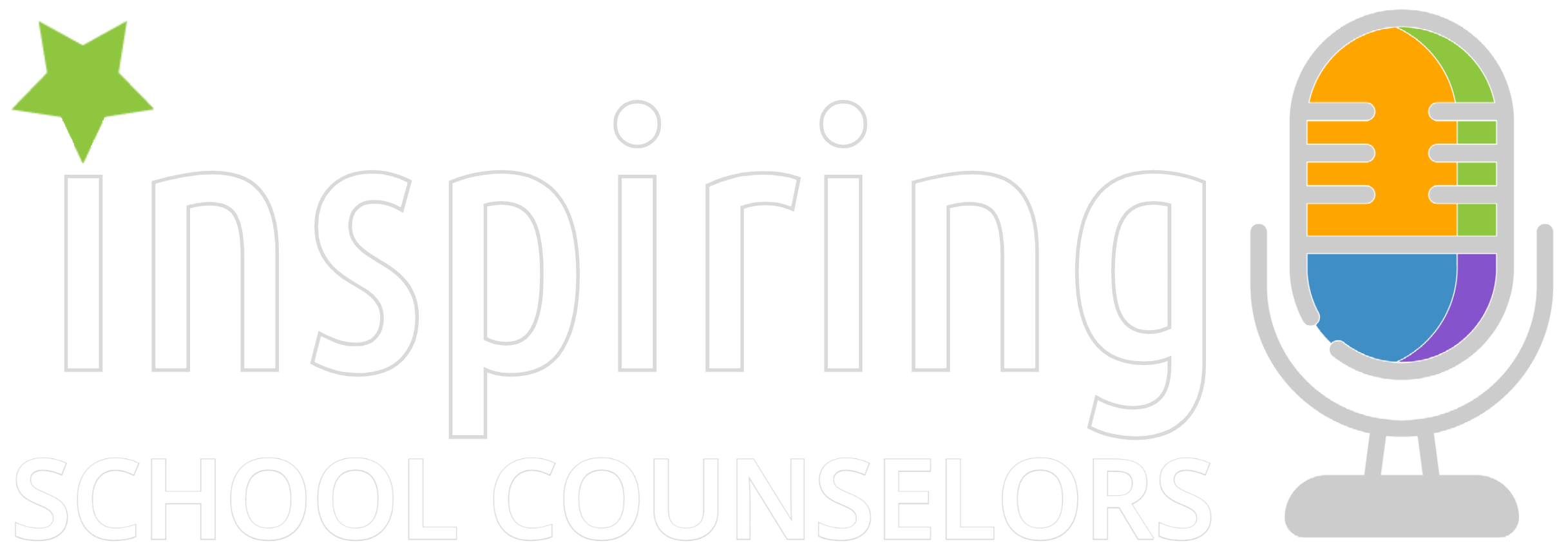School counselors may never “like” using data, but as Kentucky School Counselor of the Year Amy Beal found out, data CAN be an effective advocacy tool to help more students have a positive school experience.

This Week's Storyteller
 Amy Beal is one of two school counselors at Donald E. Cline Elementary in Cold Spring, Kentucky, a suburban school serving 373 students grades PK–5 with 100% of students receiving free or reduced lunch. Beal’s school counseling program received RAMP designation in January, 2016 and is part of the first RAMP-certified district in Kentucky. She is a governing board member of the Kentucky School Counseling Association, serves on the Comprehensive Model for Practice Advisory Council for the Kentucky Department of Education, and was named 2020 Kentucky School Counselor of the Year.
Amy Beal is one of two school counselors at Donald E. Cline Elementary in Cold Spring, Kentucky, a suburban school serving 373 students grades PK–5 with 100% of students receiving free or reduced lunch. Beal’s school counseling program received RAMP designation in January, 2016 and is part of the first RAMP-certified district in Kentucky. She is a governing board member of the Kentucky School Counseling Association, serves on the Comprehensive Model for Practice Advisory Council for the Kentucky Department of Education, and was named 2020 Kentucky School Counselor of the Year.
Resources Mentioned in this Story
Share YOUR Story!
 Do you have a touching or funny (or both) story about school counseling? We want to hear it! Drop us a line or record your story with our online Sound Booth.
Do you have a touching or funny (or both) story about school counseling? We want to hear it! Drop us a line or record your story with our online Sound Booth.
If you have questions or need help, let us know!
This Week's Sponsor
We’re sponsored this week by RAMP Ready – a new online, easy-to-use, step-by-step process for implementing the ASCA National Model and preparing your school’s Recognized ASCA Model Program (RAMP) application. You can learn more about the three levels of the RAMP Ready program – Base Camp, Ascent, and Summit – at inspiresuccess.org/rampready.
Subscribe
Encouraging Words for School Counselors is also available on these podcast apps and others. If you can’t find the podcast on your favorite app, let us know and we’ll make sure we get there. If you prefer to listen in your browser, visit https://inspiresuccess.org/podcast every week for a new episode. For new episode notifications and more, follow Inspire Success on Facebook, Instagram, or Twitter.
Transcript
Matt Fleck:
Welcome to another week and another episode of the Encouraging Words for School Counselors podcast. I’m Matt Fleck with Inspire Success. We’re sponsored this week by RAMP Ready – a new online, easy-to-use, step-by-step process for implementing the ASCA National Model and preparing your school’s Recognized ASCA Model Program, or RAMP, application. You can learn more about the three levels of the RAMP Ready program – Base Camp, Ascent, and Summit – at inspiresuccess.org/rampready.
We hear many humorous and touching stories from school counselors each week and often the most responses we get in return are to stories that describe practical resources and ideas that other school counselors can use.
That’s where elementary school counselor Amy Beal comes in. Amy was hired at Donald E. Cline Elementary School in Cold Spring, Kentucky to help the school implement the ASCA National Model and earn the RAMP Award. Amy understands and appreciates the data side of the national model – partly because her first career was in finance.
Amy Beal:
I absolutely hate statistics. That’s not my thing, but if I can put it in an Excel spreadsheet, I can make anything happen with an Excel spreadsheet. So that works out really well.
Matt:
But the real reason Amy became a school counselor is because she feels the school should be about building humanity and relationships, and providing a positive school experience for ALL students.
Amy:
I didn’t have an adult in my elementary school to build a positive relationship with. And that’s what really motivated me to become an elementary school counselor.
Matt:
Though many school counselors feel focusing on data is the opposite of — the antithesis of — building student humanity and relationships, Amy has found that good data has helped her advocate for creating a positive school environment. Nine years ago, she started collecting data specifically on two things: the number of student behavior referrals and the number of students receiving a discipline referral each year. From 2012 to 2020, the school recorded a 48% drop in behavior referrals and a decrease in the number of students receiving the referrals from 65 students to 15 students annually.
How did they do that? Through using data to advocate for intentional, system-wide changes to the school climate.
Amy:
The school has always had a theme, but it went from being a theme — so, it may be a Disney theme or a pirate theme or something like that, sports themes — to everything now is all, for the last five years I think, has been a kindness based theme. So we’ve had random acts of kindness. This year our theme is “Be the I in Kind.” We have done the book/movie Wonder, and that’s all about raising awareness of uniqueness, inclusivity, diversity, and those kinds of things. So that’s how we try to grow the positives and focus on that.
Matt:
At Amy’s school, teachers and counselors work together to teach lessons from Second Step and its anti-bullying program, they focus on the cycle of trauma, they have bulletin boards recognizing both student achievement in academics PLUS students who achieve in being positive and kind to others. And they work hard to address potential behavior problems before they happen. Amy says the ONE thing the school has complete control over is the positive school experiences piece.
Amy:
It’s giving the student an opportunity to walk away from whatever their trigger is. So, here’s a note, take this to Mrs. Beal, and it just gives them an opportunity to kind of reflect. If you end up in the principal’s office, that’s not a bad thing. Our principal will sit down with you and kind of talk about and reflect. Punishment is not a first response.
Matt:
One of Amy’s success stories is with a student we’ll call Billy. Billy came to the school as a 2nd grader and was — as Amy describes him — “a very tough nugget.” His occasional behavior check-ins became daily check-ins and quickly progressed to the point where the school knew it had to connect Billy with additional interventions and they did — emotional, academic and clinical interventions — through a network that the school has developed with community agencies.
Amy:
And now Billy, he’s still with us. He meets those personal and academic goals almost daily. So with great frequency that it has been a significant transformation for him. And really all of that was rooted in his trauma.
Matt:
Amy really likes a Resiliency Poll that they give each year to third through fifth graders that measures student resiliency, determination, positive school experiences, ostracism, and bullying.
Amy:
It’s really great to be able to measure those changes on a completely data level, but also on a personal human level to see these kids grow and change and mature in really positive ways and feel confident that they’re going to be able to tackle challenges and obstacles and barriers.
Matt:
You can hear more about Amy’s use of data and how it transformed her school if you’re attending this year’s Evidence-Based School Counseling Conference on March 14th and 15th. Amy is one of the keynote speakers at the annual conference.
We have a link to the resiliency poll Amy described on our website at inspiresuccess.org/podcast where you can also find other Encouraging Words for School Counselors stories AND links to a couple of ways you can share YOUR stories of being a school counselor using our email address (info@inspiresuccess.org) or our online Soundbooth.
We also hope you’ll subscribe to the podcast if you haven’t already AND make a positive referral yourself by telling your friends that THEY need to check us out too.
Thanks for listening. Have a great week!

